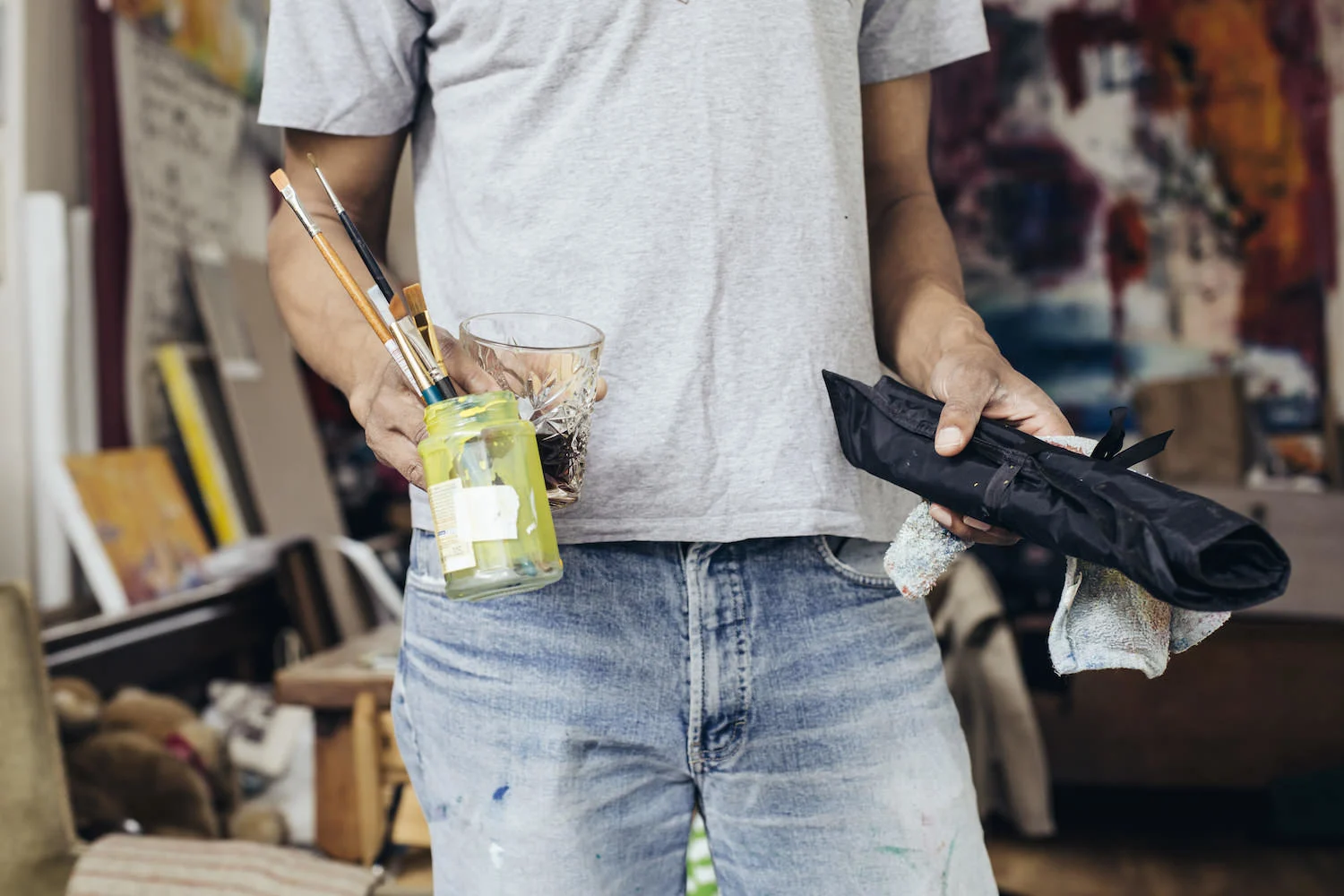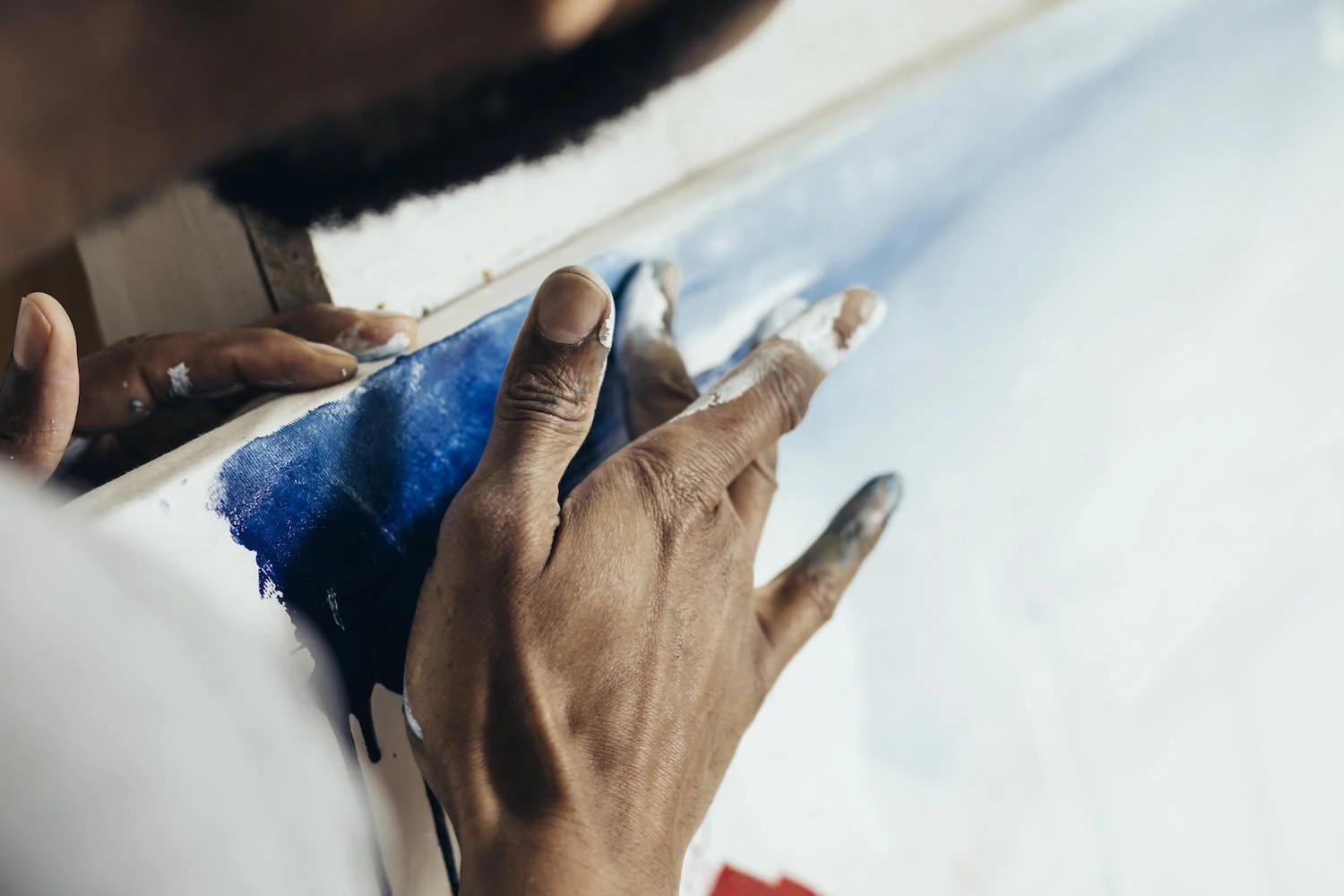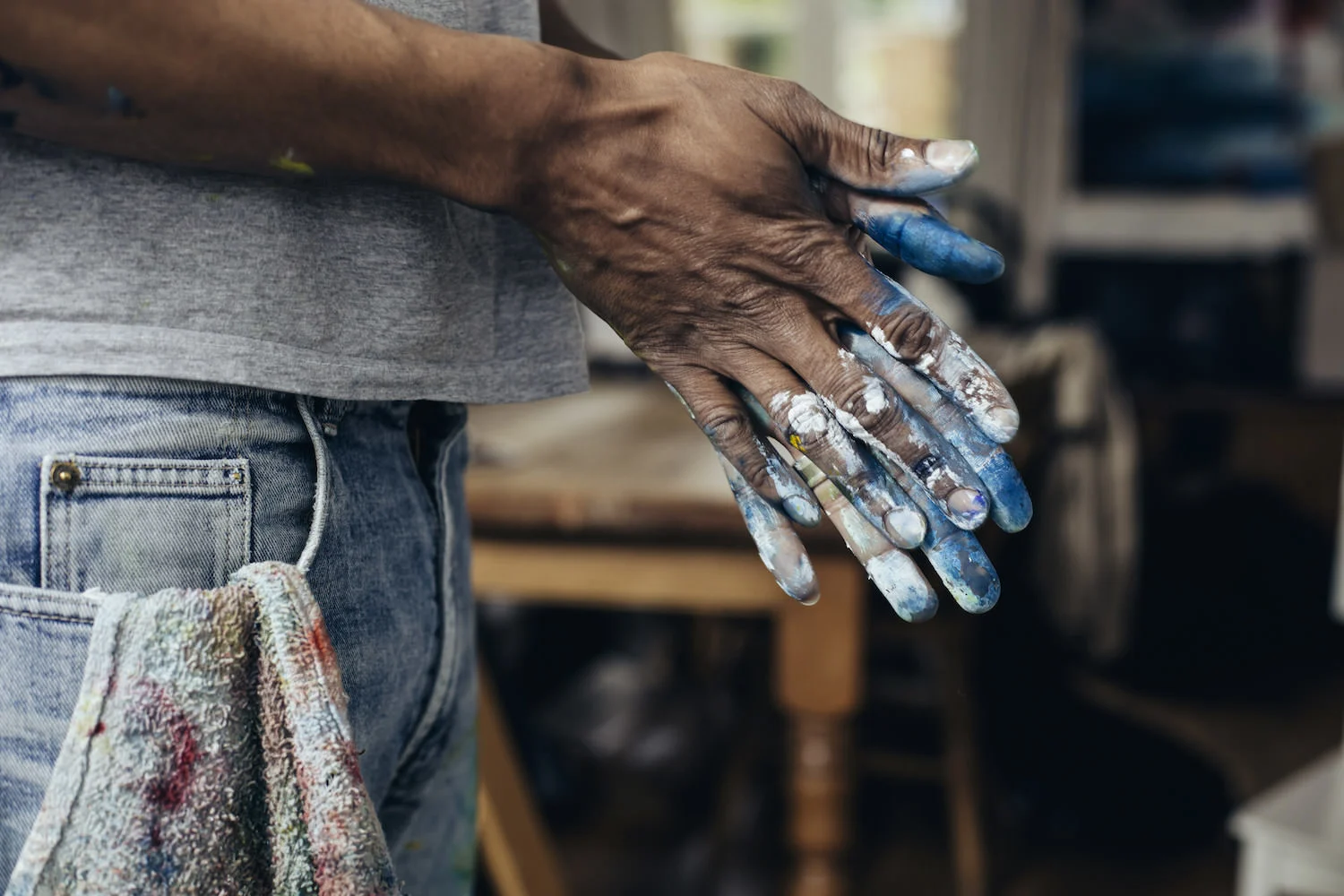Beyond the Blank Canvas: How to Start Right Now
- 15 May 2017
- ByAnna Johansson
- 5 min read

The canvas is empty. Your document is blank. The lump of clay is completely untouched. There are endless possibilities for where you can go next, but it’s also easy to get stuck.
As an artist, your work depends on your creative inspiration and your internal motivation - but you can’t force either one. You can wrack your brain for hours to find the right creative angle and come up with nothing, or you may experience sudden inspiration while grocery shopping with nothing specific on your mind.
This is the perplexing world of creative motivation and artist’s block - the broader term I’m adopting from writer’s block. Fortunately, when you find yourself staring at that untouched starting point, there are some simple ways to get going.
Top Strategies to Overcome Artist’s Block

Instead of agonizing over your blank canvas, use one of these actionable strategies to get those gears turning:
Do something. It doesn’t matter what it is. Any effort you make to produce something will help you gain momentum, and might inspire your “main” project. For example, if you have a pad of sketch paper, draw random scribbles. If you have an open document, write whatever random words come into your mind. This has the potential to jog your creative side and warm you up for the main event.
Get your alpha waves flowing. Engineers and artists seem like opposite ends of the creative spectrum, but they share one common pursuit: a desire for that all-important “eureka” moment, when everything becomes clear, and a seemingly random idea points you in exactly the right direction to finish your project. Eureka moments are elusive and only loosely defined, but research suggests that novel, unusual ideas are frequently associated with alpha wave patterns in the brain. How can you produce those alpha waves? You need to relax. Go meditate. Get a massage. Listen to soothing music and take a bubble bath. The more stressed you are, the harder it’s going to be to get those ideas flowing.
Archive your “nugget” ideas. Maybe your problem isn’t coming up with ideas. Maybe it’s that you have too many ideas. Your mind buzzes with a hundred different possible directions, but none of them stand out as being worth a full commitment. What can you do with this? My suggestion is one I’ve used in the past: archive them. Take a notepad and jot down all your tiny ideas, even if it’s just a word, phrase, or concept with no plan for execution. Once they’re on paper, they’ll seem more real, and you’ll be able to distinguish if any are worth pursuing. If not, you’ll have them available as potential jumping-off points for the next time you hit a block, when they’ll seem fresher (a common tactic for many industries that demand creative problem solving). The more you do this, the bigger your archive will be.
Go somewhere new. Ever walked into a different room, only to suddenly forget why you went in there in the first place? You’re not alone. This is actually an empirically studied phenomenon known as the “doorway effect.” It turns out, our brains store information in relation to specific “events.” Basically, our brains keep information around for as long as one “event” remains active, and beginning a new event causes a memory dump that gives your brain a kind of blank slate. Walking through a doorway, into a different room, triggers a signal that a new event has begun. So if you want to refresh your brain and prepare for new information - go somewhere else! (Even if it’s just another room.)
Talk to someone. Literally anyone. Our minds work by creating connections between ideas. Allow me to demonstrate: picture a giraffe driving a hovercraft on a river made of honey. Clearly, you’ve never seen this before, but your brain knows what things like “giraffe” and “driving” and “hovercraft” look like, so you can assemble those nodes into a completely novel concept based on this prompt. Talking to other people may not introduce you to this type of specific, random sequence, but it’ll introduce you to ideas, perspectives, and angles that you aren’t used to - and that could form the prompt you need to get going.
Resisting Perfection

The best strategy isn’t an especially actionable item, but with this mindset, you can be much more productive. Many artists struggle with perfectionism, often getting stuck on a new project because they want it to be perfect from the beginning. If you can ignore this instinct, you’ll move more quickly down the road to creating great work. Even if your first attempt isn’t the best, it’ll give you a starting point - and maybe the tangential inspiration you need to create your masterpiece.
15 May 2017
Words by:Anna Johansson
- Share